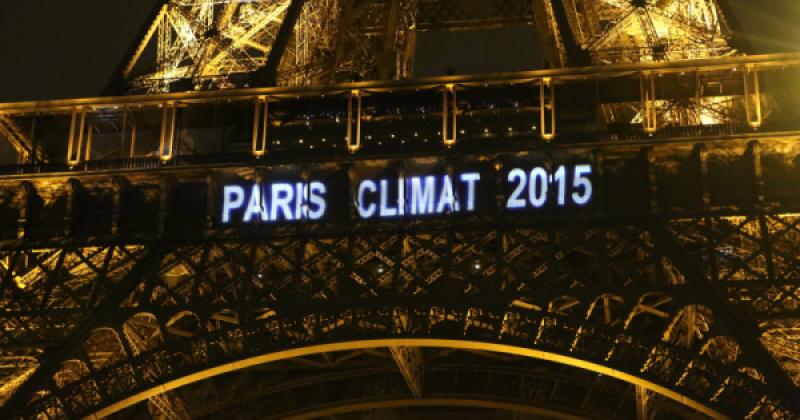When I heard that Trump had decided to pull the United States out of the Paris Agreement on Climate Change, I immediately thought about an event I attended at the Vatican last September on Laudato si’ and the implementation of the accord.
During that event, Cardinal Charles Maung Bo of Yangon, Myanmar, made the following statement:
"Unless rich countries agree to reduce the global warming, more people will die. This to me is a criminal genocide when the poor and the weak are exposed [to] violent nature created by unrestricted use of fossil fuels by rich countries."
In the United States, climate change is often seen as a niche concern of the elites. Environmental activists are mocked for their “apocalyptic” tone.
But Cardinal Bo is not an American, an elitist, or an environmental activist. He is a bishop who lives the values of the Gospel, and who sees on a daily basis what the environmental crisis is doing to his people. This is how churchmen from the developing world talk.
But Americans are sheltered from this reality. They do not see the effects of climate change on the lives of the world’s poorest people - not in the distant future, but right now.
By using a word like “genocide", Cardinal Bo is signaling that this is about as morally serious as it gets. In the famous list of infamies in Gaudium et spes, genocide pretty much tops the list. By this reckoning, undermining the Paris Agreement is signing the death warrants of untold numbers of people, the vast majority of them poor.
Some of these people are alive today; some have yet to be born. But make no mistake: if you support Trump on this, you are formally cooperating with evil.
This brings me to the shameful reaction of some high-profile American Catholics. Paul Ryan, Newt Gingrich, and Rick Santorum have all come out in support of Trump’s decision. So have many right-wing Catholic activists who claim to be pro-life.
By so doing, they are explicitly repudiating the encyclical Laudato si’, whose publication was timed to influence the negotiations that led to the Paris Agreement. If you repudiate Paris, you repudiate Francis. You also turn your back on the rest of the world and on the scientific consensus. (Callista Gingrich is set to become the new ambassador to the Holy See.
Does she agree with her husband about Laudato si’ and the Paris climate accord? She ought to tell us where she stands.)
The United States Conference of Catholic Bishops (USCCB) did issue a statement criticizing Trump’s decision. But given the moral gravity of the situation, I think the bishops’ language was too weak. They called the withdrawal “deeply troubling".
The USCCB uses much stronger language when it comes to the right to opt out of contraception coverage in health-care plans. Some Vatican officials offered a stronger reaction. Bishop Marcelo Sanchez Sorondo, chancellor of the pontifical academies, called Trump’s decision a disaster, a great evil, and a slap in the face.
The time has come for the U.S. bishops to listen more to what their counterparts in the developing world have to say about this issue, and to speak more like them. They need to appreciate that climate change is a major pro-life issue, and must be treated as such.
They need to appreciate that, because the United States has an enormous carbon footprint, it bears much of the blame for the current state of affairs, and therefore much of the responsibility for leading global efforts to reduce carbon emissions. This will take courage. It will require swimming against the tide.
Too many Americans have bought into a ruinous ideology that disdains responsibility for global problems. Too many believe that as Americans they have the right to treat the bounty of nature however they see fit. At the same time, too many American politicians have been bought for thirty pieces of Koch-stamped silver.
And too many American churchmen remain financially beholden to wealthy donors, trustees, and supporters who do not look kindly on Pope Francis’ agenda.
Trump’s decision to withdraw from Paris was a moral catastrophe. But there might be a small silver lining. The divisions are now exposed, and it has become even clearer than before that we face a stark choice between the values of Pope Francis and those of Donald Trump.
The president’s influential Catholic supporters will find it even harder now to justify their position by appealing to “prudential judgment". For there is nothing prudent about Trump’s environmental policies, which are distinguished by their blithe disregard for consequences.
The church’s leadership in this country needs to admonish Catholic politicians and institutions providing cover for such recklessness - even if this means losing some financial contributions.
They might, for example, say something about an upcoming conference at the Catholic University of America that will honor Charles Koch. In light of everything that has happened, is this really a prudent choice for a pontifical university?
